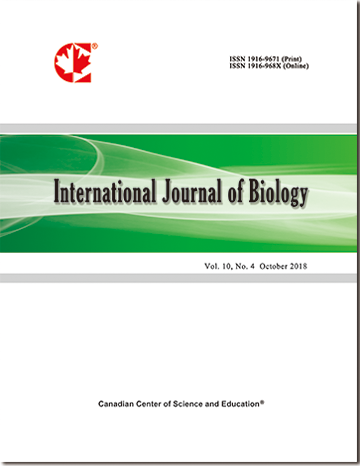Cadmium-Induced Changes in Germination, Seedlings Growth, and DNA Fingerprinting of in vitro Grown Cichorium pumilum Jacq.
- Wesam Khateeb
Abstract
The aim of this study was to assess the effect of Cd2+ on germination, growth, proline content, lipid peroxidation, and DNA fingerprinting of in vitro grown Cichorium pumilum. Results showed that seed germination was highly inhibited by cadmium (down to 47% at 1600 µM CdCl2). In addition, root and shoot growth showed significant decreases in response to CdCl2 level. Analysis of proline content and lipid peroxidation showed that with increasing CdCl2 levels in the growing medium, the amount of proline accumulation and lipid peroxidation increased gradually. Total chlorophyll content was found to increase only at higher tested levels of Cd2+ (800 and 1600 µM). The results also show that Cd2+ inhibits callus growth at different levels starting from 50 µM CdCl2 compared with the control in the callus growth experiment. Callus growth ceased completely at 200 µM CdCl2 and above. Random amplified polymorphic DNA (RAPD) analysis showed DNA alterations in Cd2+-treated C. pumilum microshoots compared with the control. The results of this experiment showed that Cd2+ stress affects several physiological, biochemical, and molecular processes in C. pumilum.
- Full Text:
 PDF
PDF
- DOI:10.5539/ijb.v6n1p65
Index
- ACNP
- AGRICOLA
- BASE (Bielefeld Academic Search Engine)
- CAB Abstracts
- CiteFactor
- CNKI Scholar
- CrossRef
- DTU Library
- Elektronische Zeitschriftenbibliothek (EZB)
- Excellence in Research for Australia (ERA)
- Google Scholar
- Infotrieve
- LIVIVO (ZB MED)
- LOCKSS
- Max Planck Institutes
- MIAR
- PKP Open Archives Harvester
- Qualis/CAPES
- ResearchGate
- ROAD
- SafetyLit
- SHERPA/RoMEO
- Technische Informationsbibliothek (TIB)
- Universe Digital Library
- WorldCat
Contact
- Ryan JonesEditorial Assistant
- ijb@ccsenet.org
